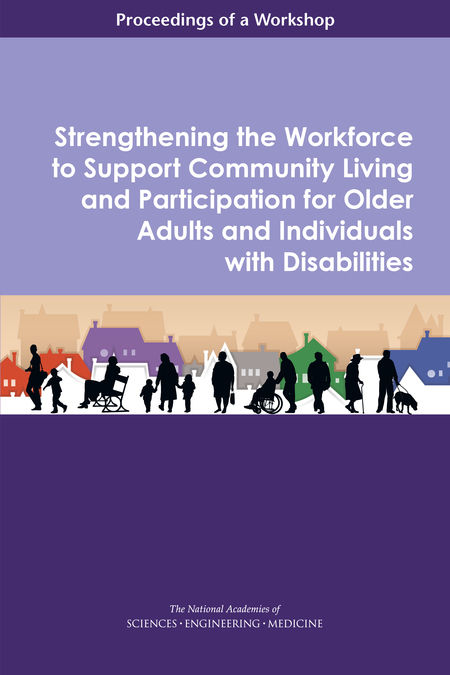Strengthening the Workforce to Support Older Adults and Individuals with Disabilities Publication Av

As the demographics of the United States shift toward a population that is made up of an increasing percentage of older adults and people with disabilities, the workforce that supports and enables these individuals is also shifting to meet the demands of this population. For many older adults and people with disabilities, their priorities include maximizing their independence, living in their own homes, and participating in their communities. In order to meet this population’s demands, the workforce is adapting by modifying its training, by determining how to coordinate among the range of different professionals who might play a role in supporting any one older adult or individual with disabilities, and by identifying the ways in which technology might be helpful.
To better understand how the increasing demand for supports and services will affect the nation’s workforce, the National Academies of Sciences, Engineering, and Medicine convened a public workshop in June 2016, in Washington, DC. The Forum on Aging, Disability, and Independence hosted this workshop, co-chaired by John A. Hartford Foundation President Terry Fulmer. Main contributors to the workshop also included representatives from JAHF grantees, the Gerontological Society of America and the Eldercare Workforce Alliance along with other partners including the Department of Veterans Affairs and the Health Services and Resources Administration.
The workshop identified how the health care workforce can be strengthened to support both community living and community participation for adults with disabilities and older adults. This 2017 publication summarizes the presentations and discussions from the workshop.
To order a hard copy of the publication, or to download it for free, click here.
